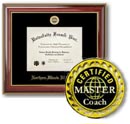|
Global culture plays an increasingly
important role in the work of HR and learning
development professionals, requiring new cross-cultural
competencies. In the new, borderless economy, culture - and
cultural competency - doesn't matter less, it matters more. As
economic borders come down, cultural differences arise, presenting new
challenges and opportunities in business. Core leadership
behavioral competencies and organizational capabilities are key factors
influencing long-term success in global markets. Thus, we are
witnessing a renewed interest in human resource management as a
major strategic tool that can uphold the competitive position of a
global firm. The international debate over leadership skills
shortages is also forcing the HR profession to examine
their own leadership skills development programs.
Although understanding culture is a
proven key to global success, a recent 30-nation survey of global
leaders and their executives found that executives from the US,
Canada and Australia were in the lowest ranks of business leaders
who believed that multinational experience matters. Companies from these
countries are in danger of losing their competitive advantage by
disregarding the very thing that makes organizations successful in
a global marketplace. Among globally successful companies, culture
isn't an obstacle to overcome. Rather, it provides a leverage for
competitive advantage.
How HR
can build cross cultural competence
Leaders who are cross-culturally competent create meaning by
facilitating world-wide words and actions to articulate the higher
purpose of the organization. To facilitate the skill-building
in their global executives a growing number of organizations
are now training "cross cultural coaches" or
"global leadership coaches" around the world to help
personalize, interpret, and operationalize their core values.
Strengthening diverse,
multicultural teams is vital to working in a networked
environment. By staying true to their principles while respecting
different cultural norms, leaders who have undertaken global
leadership skills coaching programs use conflict to build
understanding, creativity, and momentum. These globally literate
leaders are good stewards of their own personal resources and use
every interaction as a learning opportunity.
Leadership development
professionals must develop a new set of thinking, attitudes,
behaviors and competencies for the 21st century. They must help their
leaders at all levels of the organization to be more
personally aware, socially skilled, and culturally wise.
Global
Leadership -The bottom Line
To
survive and thrive in the global marketplace, an organization needs
leaders with highly developed behavioral-based skills. And we need
executives who can become tomorrow's leaders -who have committed to
internal mastery, who know themselves and bring their best selves
forward on a daily basis. Here is where global leadership
coaching comes in. To develop a global leader, we need to
continually develop them as a person – someone who has not
yet tapped all of his or her potential, someone who still has many
qualities to bring forward
- Global
leadership coaching helps the executive to expand their 'soft'
leadership skills, knowing that the technical, 'hard skills' that have allowed the executive
get to where they are may not be enough to sustain them as they
move forward in their global career
- Global
leadership coaching can empower the executive to lead from
a breakthrough mentality vs. maintaining the status quo
mentality
- Global
leadership coaching assist leaders to find new and
productive ways to manage the interpersonal aspects of leading
others from diverse backgrounds
- Global
leadership coaching provides executives powerful ways to
influence others around them
-Global Leadership Coaching can also help executives:
- create a
vital sense of purpose and act in accordance with their values
and organizational goals
- establish
ways out of the distractions and urgencies of their day-to-day
cultural adjustment and ways into working, living, being and
“leading on purpose”
- better
manage negotiations, meetings, people, challenges, transitions,
new responsibilities etc
- offer
their most authentic, talented self to their peers,
subordinates, and organization
|


